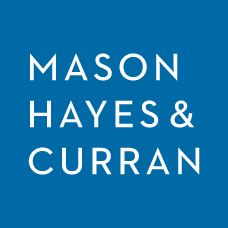Traditional Medicines and OTC Products
Mason Hayes & Curran / Ireland
An insight into traditional medicines and OTC products in Ireland. Prepared in association with Mason Hayes & Curran, a leading law firm in Ireland, this is an extract from The Pharma Legal Handbook: Ireland, available to purchase here for USD 99.
1. What are the regulatory requirements for traditional, herbal, complementary, or alternative medicines and devices?
Traditional, herbal, complementary or alternative medicines and devices on the Irish market must be either authorised or registered with the HPRA which, as the competent authority for regulation of traditional herbal medicinal products (THMPs), is responsible for their monitoring. Applications to register herbal medicinal products can be submitted under Article 8(3) or Article 10(a) of Directive 2001/83/EC. The Directive on Traditional Herbal Medicinal Products (2004/24/EC) was transposed into Irish law with the implementation of the Medicinal Products (Control of Placing on the Market) Regulations 2007 (S.I. No. 540 of 2007). The Directive on THMPs required each MS to set up a registration process for traditional herbal medicines which can be used without medical supervision. As a result of history of traditional use and acceptable safety and quality levels, THMPs are subject to a simplified registration procedure, they must:
- be intended and designed for use without the intervention of a medical practitioner
- be taken orally, for external use or inhalation
- be administered exclusively at a specified strength and dose
- be on the market for a ‘period of traditional use’
If herbal medicinal product does not meet the criteria for registration as a THMP, it can still be granted an MA in the same way as non-herbal medicines. Where a herbal product contains active substances in quantities to have a medicinal effect, they are then classified as a medicinal product. Products which are presented as having properties for treating or preventing disease are also medicinal products. Therefore, herbal medicinal product cannot be placed on the market unless it is the subject of either a marketing authorisation or, in the case of a traditional herbal medicinal product (THMP), a certificate of traditional-use registration granted by the HPRA.
To demonstrate ‘traditional use’, the applicant will need to prove that the THMP or a ‘corresponding product’ has been in medicinal use for at least 30 years at the time of application, with at least 15 years of this usage in the EU. And, in order to justify the proposed indication of usage, applicants are required to produce bibliographic or expert evidence documenting the traditional use of the product. The HPRA will monitor and take regulatory action (where appropriate) against unregistered THMPs found in breach of the requirements. A manufacturer of THMPs, or any other medicinal product, is required to hold a Manufacturer’s Authorisation in accordance with the Medicinal Products (Control of Manufacture) Regulations 2007.
2. Can these traditional, herbal, complementary, or alternative products be advertised directly to the public?
Yes, traditional, herbal, complementary, or alternative products can be advertised directly to the public (as long as they have certificate of traditional use registration), but if they are medicinal the Advertising Regulations apply in respect of, for example the accuracy of advertisements and prohibition of mis- leading statements. Advertisements to the public must be accurate and objective, as well as encourage rational use of the product to ensure consistency with the certificate of traditional use registration and SmPC. Members of the ASAI advertisements must comply with the general advertising requirements in the ASAI Code, such as the advertisement should be honest and not bring the Industry into disrepute. (See Question 17 of Marketing, Manufacturing, Packaging & Labeling, Advertising)
3. What health, advertising, and marketing claims may be made for traditional, herbal, complementary, or alternative products?
The Advertising Regulations regulate the advertising of medicinal products and include traditional, herbal, complementary and alternative products. The Advertising Regulations prohibit the advertising of medicinal products that are not the subject of a marketing authorisation or certificate of traditional – use registration. Under Part 3, Section 12, in relation to the ‘form and content’ of advertisements, the Advertising Regulations stipulate that if it is a traditional herbal medicinal product, the following words must be used for making claims about the product; “Traditional herbal medicinal product for use in” followed by a statement of one or more therapeutic indications for the product compatible with the terms of the certificate of traditional-use registration for that product, followed by the words “exclusively based upon long-standing use”.
4. What are the regulatory requirements for over-the-counter (non-prescription) medications?
OTC (non-prescription) medicinal products are regulated by the HPRA. Manufacturers are obliged (as with prescription-only products) to apply for MAs in order to supply OTC products in Ireland and/or throughout the EEA. The criteria for deciding legal supply status are included in national legislation, Medicinal Products (Control of Placing on the Market) Regulations 2007 (as amended), under Section 12 of the Regulations ‘Classification of Medicinal Products’. Generally, new medicines are only provided on prescription and can, after a number of years of safe use, apply for reclassification and change their legal supply status.
5. Are there any limitations on locations or channels through which OTC products may be sold?
There are restrictions and regulations around the locations and channels that OTC products can be sold. Depending on their classification and legal supply status, they can either be purchased only in pharmacies or if they are available for general sale, can also be sold in supermarkets and other shops. In respect of purchasing products online and being delivered by post, the legal framework for purchasing medicines online in Ireland is set out in Directive 2001/83/EC as amended by Directive 2011/62/EC. As per Question 18 of Marketing, Manufacturing, Packaging & Labeling, Advertising, non – prescription medicines can be purchased from online retailers who display the EU ‘Common Logo’ with a link provided through the logo to the PSI’s website.
6. What health, advertising, and marketing claims may be made for OTC products?
Any health, advertising and marketing claims in relation to OTC products must be in accordance with Section 11, Part 3 of the Advertising Regulations, the IPHA Code of Standards for Advertising Practice for the Consumer Healthcare Industry and ASAI Code of Standards for Advertising, Promotional and Direct Marketing (see Question 17 of Marketing, Manufacturing, Packaging & Labeling, Advertising).
7. Can OTC products be marketed or advertised directly to the public?
Yes OTC products can be marketed or advertised directly to the public, but the same restrictions that are applicable to herbal medicinal products and prescription – only products apply under the Advertising Regulations.
8. What is the mechanism by which a prescription-only product can be converted to an OTC product?
In order to reclassify or ‘switch’ a product from prescription-only to non-prescription an application must be made by the MAH to the HPRA as (under Regulation 12 S.I. No 540 of 2007) they have responsibility for the classification/reclassification and maintenance of a record of legal status for all authorised medicinal products. Switching involves either:
- Prescription-only to pharmacy-only status; or
- Pharmacy-only to general sale status (e.g. can be sold in supermarkets).
Occasionally a product previously classified as non-prescription can be reclassified to prescription control or pharmacy-only status if new risks to the public are identified. Reclassification or switching requires an application to the HPRA for a change in legal supply status to the MA. Following receipt of an expression of interest, the HPRA engages with the applicant to determine an appropriate timeframe for submission of a completed application and the supporting documentation.
Prescription-only to pharmacy-only status
It must be noted that in general, switching applications are only considered for products that have a well-known and established safety profile as a prescription-only medicine. If post-marketing safety experience for a product shows that the medicinal product may be safely used without supervision by a physician, application can be made for reclassification from prescription-only to pharmacy-only status.
Pharmacy-only to general sale status
If the benefit/risk evaluation of increased availability of a given pharmacy-only medicine is considered positive, application for general sale status can be considered; sufficient evidence must be provided to ensure that such a medicine can be safely supplied without the intervention of a pharmacist.
Where products were authorised via the national procedure, an application to switch can be submitted either as a variation or a new application and if approved, the MA is updated accordingly. It must be noted that switch applications only apply to particular marketing authorisations. If a product was authorised under the MRP or DCP, any reclassification applications will require special consideration and should be discussed with the HPRA prior to submission. If Ireland is either the RMS or CMS the HPRA will need to determine whether the change can be processed nationally or whether the change in legal status needs to be submitted through an MRP or DCP process.
Each application is evaluated on a case-by-case basis and in terms of the documentation concerning safety and efficacy required to support an application for a change in the legal classification for supply varies from application to application and depends on the nature of the active substance and the extent of change proposed for the MA. The HPRA will require clinical expert reports which include benefit/risk evaluations and safety and efficacy expert reports and risk minimisation strategies. The HPRA will also require full colour mock- ups of the package leaflet and label that has been user tested to ensure that it is clear, simple and readable.
Under Directive 2001/83/EC, any application for reclassification of a medicinal product that includes results of pre-clinical tests or clinical trials that are the basis for the change of classification, entitles the applicant to one year’s exclusivity.
9. What are the requirements for the importation of either traditional medicines or OTC products?
The manufacture of THMPS or any other medicinal product, including OTC medicinal products requires authorisation (either an MA or certificate of traditional-use registration in accordance with the 2007 Medicinal Products (Control of Manufacture) Regulations and therefore, their importation from countries outside the EEA will require an MA or a certificate depending on the product.























































